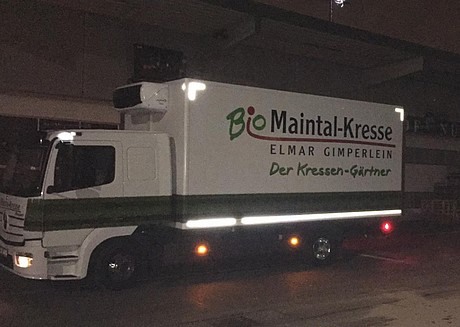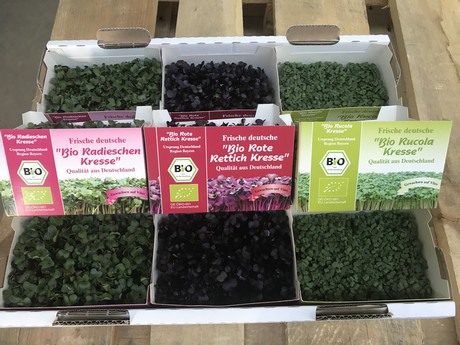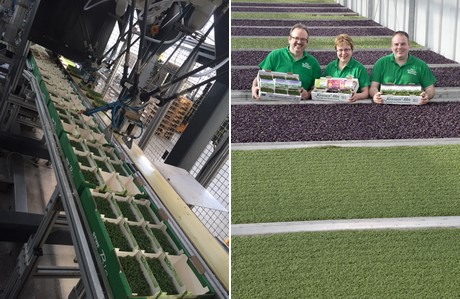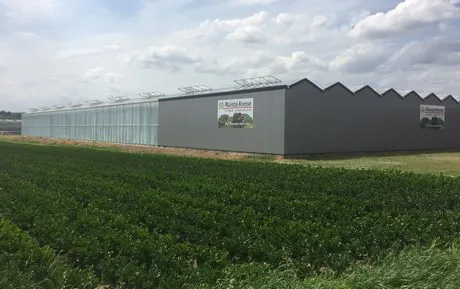Regionally cultivated cress are well received by German consumers all year round. In spring in particular, more cress is sold, while demand in winter is usually somewhat lower. During the cold season, the sale of cress shifts more from wholesale to supermarkets. "From Christmas onwards, sales of various types of cress will rise, this will increase more and more in the winter months and continue until Easter," expects Christian Gimperlein, co-director of the cultivation and trading company Bio-Maintalkresse LLC, based in Albertshofen.
 Nightly delivery at the Nuremberg Fresh Produce Centre.
Nightly delivery at the Nuremberg Fresh Produce Centre.
Over the last few days, the committed gardener has delivered his goods to several customers on the southern German fresh markets in Nuremberg and Munich. "However, this is rather something of an exception, because one needed goods urgently. Otherwise, the market is a bit restrained at the moment, but this is quite normal in the pre-Christmas period.
On 21 and 22 December - shortly before Christmas - sales will, as expected, skyrocket again. Afterwards a rest phase will then again occur, because many gastronomes to make canteens and weekly markets up to 6 January predominantly.
 Even in winter, the standard range is available in consistent quality.
Even in winter, the standard range is available in consistent quality.
Focus on food retailing
In the course of January, sales will gradually pick up again, Gimperlein says on demand. In general, sales during the winter season tend to fall back on LEH and discount customers: "Up to 70-80 percent of our current sales end up on supermarket shelves. Only when Lent starts again (from February to March) will we gradually deliver a little more to the fresh produce markets."
Weekly market traders - an important customer group of the southern German fresh markets - tend to access cress somewhat less often during the winter, because the sensitive products do not last long at low temperatures. In addition, consumers prefer to go to the supermarket rather than the weekly market in winter, confirms the grower, who supplies branches of various well-known chain stores in southern Germany.

Consistent product quality
Despite the low temperatures, organic cress thrives very well in the Gimperlein family greenhouse, even in winter. Irrespective of the weather outside, the crops grow 365 days a year in protected cultivation - thanks to precise climate control, heating and appropriate lighting, among other things. "This means we can guarantee a constant product quality to the trade all year round. The consumer will not notice any difference between our summer and winter production," the junior manager assures us.

In terms of varieties, the same product range is also available in winter, he adds. "Normal garden cress, red radish cress, radish cress and rocket salad cress are sought after all year round. In addition, we sell one or two exotic varieties," they said in conclusion.
For more Information:
Christian Gimperlein
Bio Maintalkresse
An der Geißspitze
97320 Albertshofen
Tel.: 09321 384504
Fax.: 09321 384505
elmar.gimperlein@t-online.de
Facebook
